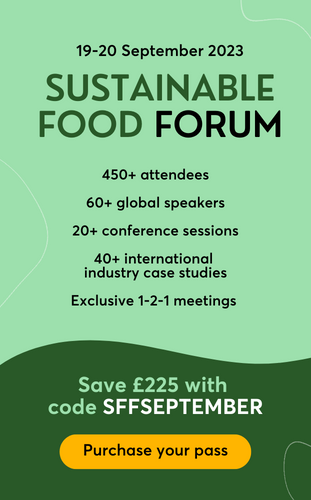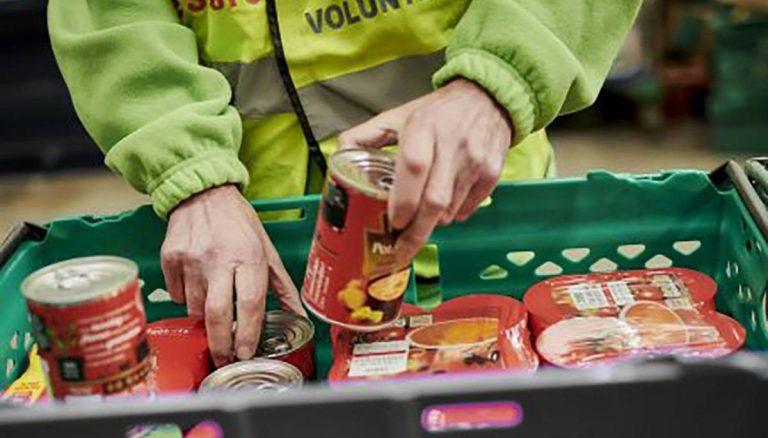Waste not, want not: how students can reduce food waste and help fight climate change

Food waste is a large contributor to greenhouse gas emissions and plays a huge role in the climate change crisis. It is no secret that we need to make some changes. Some drastic changes.
The Food Waste: The Student Perspective report found that people aged 18-34 waste more food than people within other age groups. This highlights the importance of tackling food waste amongst university students and coming together to reduce greenhouse gas emissions.
Project Drawdown lists reducing food waste as one of the top ways we can slow down global warming. This involves many aspects of the food industry, from farming to processing, but also includes the food thrown away in households across the globe.
Goal 12.3 of the United Nations Sustainable Development Goals aims to halve global food waste by 2030. If you’re reading this and you throw away edible food, you can be part of the change. The brilliant thing about changing the way we use food and finding new, creative ways to avoid waste, is that every single person can play a part.
Limiting food waste does mean using up your stock before it is past safe consumption and eating up leftovers when you make a little too much, but it also involves learning about what you can actually eat, especially when it’s a little less obvious.
Take cauliflower, for example, did you know that you can eat the WHOLE of the cauliflower, leaves and all? Top tip: roast the leaves up with a little olive oil, salt and pepper for an easy, nutritious snack packed full of polyphenols. Thank you Tim Spector!
OLIO connects people with surplus food
OLIO, a B Corp certified and carbon negative mobile app, encourages neighbours and communities to share surplus food (and other household items) to prevent it from going to landfill. It is a free, easily accessible way to play a part in tackling climate change and not only do you get to look after the planet, but you can also get some amazing freebies too.
As well as being able to source food on the app, you can use it to share your own surplus. You never know how something small to you can mean so much to someone else. With the cost of living crisis on the rise, many people are hungry and rely on apps such as OLIO. Here are some of the facts they have shared:
Food waste in numbers
- One-third of food produced globally feeds bins, not humans
- The annual value of food wasted globally is $1 trillion
- Every single hungry person in the world (an estimated 1 billion people) could be fed on less than a quarter of the food that is wasted in the US, the U.K., and Europe alone
- An area larger than China is used to grow food that is never eaten
- Reducing food waste is the number one solution to fighting the climate crisis
The benefits of minimising food waste
Money saving
As a student, finances can be difficult to manage and it’s imperative to budget and prioritise where you spend your money. Avoiding food waste and getting the most out of what you buy is an easy way to save a little bit of money.The Student Perspective report found that the ‘average purchase cost of avoidable food waste per student’ is roughly £273.00 per year!
Getting creative in the kitchen
Did you know, the most commonly wasted foods are bread, milk, potatoes, cheese, apples, bagged salad, and fresh produce? These are common staples within households in the UK and instead of throwing surplus away, you could make a brand-new dish instead! Think bread and butter pudding, potato soup (topped with croutons made with that last slice of bread you were going to throw away), apple pie…the ideas are endless!
Improving your nutrition
The most commonly wasted foods are packed full of healthy nutrients. Just like with the cauliflower leaves and adding polyphenols to your diet, you can consume extra vitamins and minerals by eating parts of food you never knew you could! But be sure to consume safely and if you’re not sure, look before you cook!
Your actions make a difference: take action!
Cook in bulk
This is a really simple but cost- and time-effective way of cooking. You could share meals and a cooking rota with your flatmates, or you could freeze meals in a tub and have a handy meal ready for when time is running short.
Plan your meals and buy only what you need
Write a menu and stick to it! Buy only the ingredients you require and in the right quantities if possible – local markets come in handy here and you are supporting small, local businesses at the same time. Remember to be savvy with your ingredients; if you buy a broccoli tree, chop up the trunk and add to a stir-fry or a smoothie.
Make easy, nutritious meals with food leftover at the end of the week
A meal is a meal no matter how weird and wonderful. Trial some new vegetable soups and stews or get experimental and see what you can make with the ingredients left at the end of the week. Instagram accounts such as @lovestudentleftovers share easy recipes using commonly wasted foods to get some inspiration. Give yourself a challenge and see what you can make.
Use apps such as OLIO to donate surplus food
Collecting unwanted food and saving money is just a couple of clicks away. Or you could bring the same idea a little more local and have a weekly food swap within your university halls.
Start a community fridge at your university
Get in touch with the catering team in your university canteens and see if you can have a community fridge where students (and local coffeeshops) can contribute unwanted/soon-to-go-off-food to share with others.
Get creative!
If you’ve got an eye for art, take a look at Jane Gray’s ‘Tea Bag Wedding Dress’ made out of unbleached Clipper tea bags – now that’s reusing and avoiding waste at its finest!
Talk to your university
Twenty-one percent of students that took part in The Student Perspective report said that they would find it useful to learn more about the impacts of food waste as part of their university degree. Talk to your lecturers to see how they can implement this into the program.
Reduce your carbon ‘foodprint’ today
The Office for National Statistics reports that households contribute to 70% of food wasted in the UK. When food goes to landfill and decomposes in the absence of oxygen, it produces methane. This is 23 times more deadly than carbon dioxide and is extremely problematic for the environment. If you adopt just one of the tips listed above, you are contributing to the fight against climate change. You are taking action.








